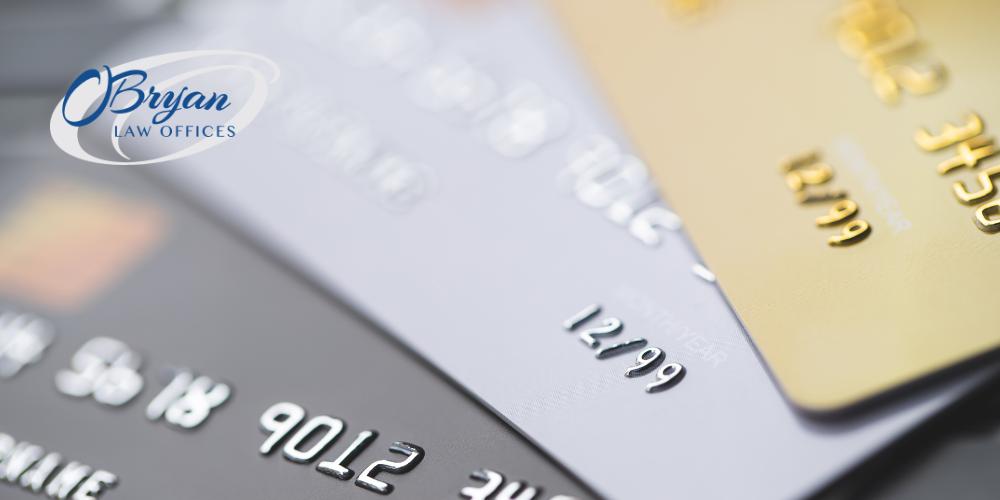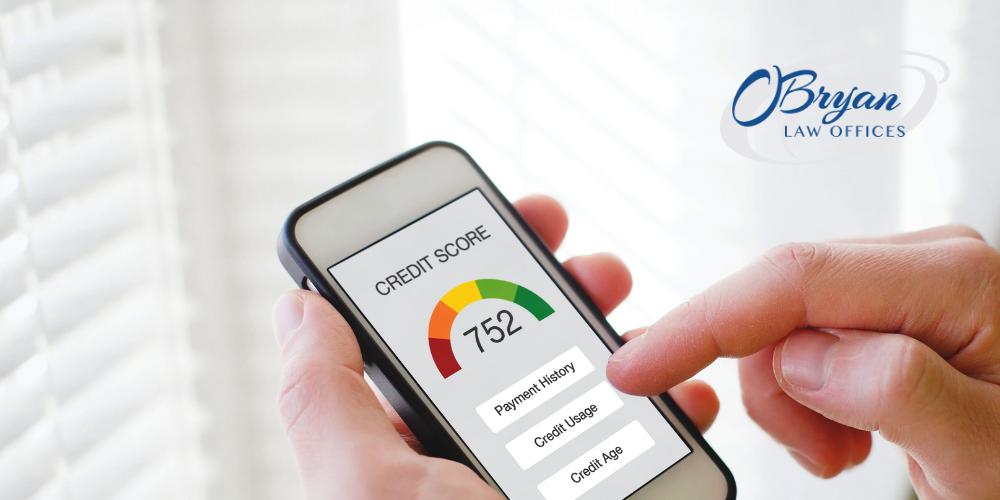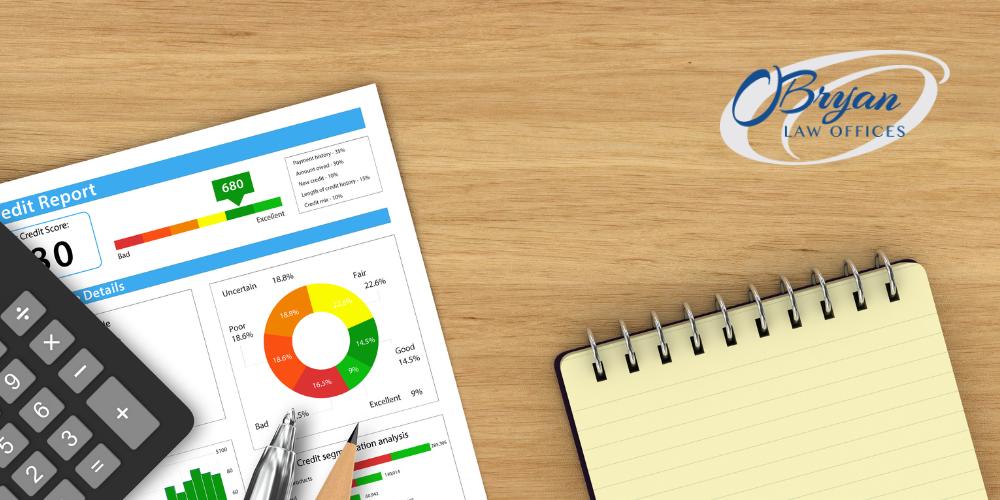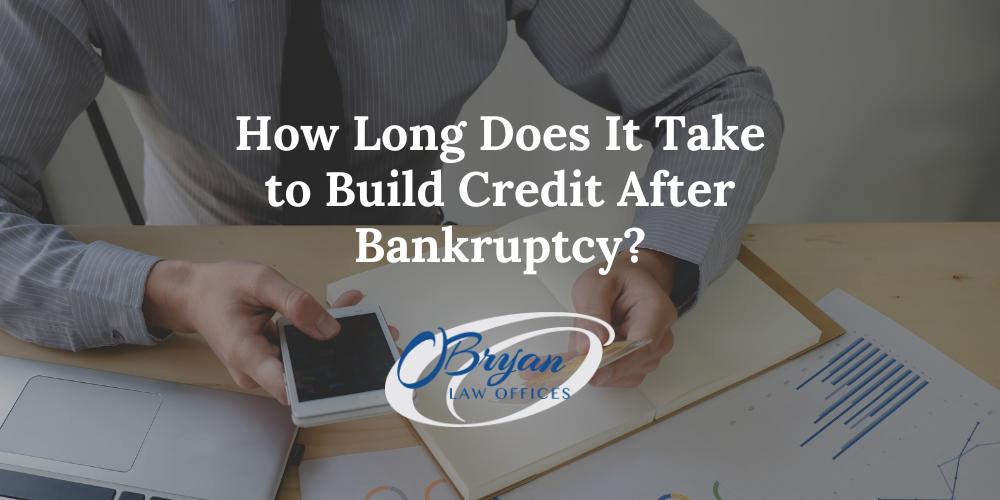As you probably already know, a person’s credit score indicates how likely they are to pay back their debts, based on their past financial history. Filing for bankruptcy can have a significant impact on a person’s credit score, often causing it to drop considerably. This is because bankruptcy signals to creditors that they’ve had difficulty meeting their financial obligations.
If you’ve filed for bankruptcy or plan on doing so in the future, you can expect to see a significant decrease in your credit score once the process is over. However, several easy ways can help you rebuild your credit over time. In this article, we’ll go through various strategies you can use to increase your credit and prove your creditworthiness to creditors.
If you are struggling to improve your credit, the Louisville credit restoration attorneys at O’Bryan Law Offices are here to help. We will walk you through the steps you’ll need to take to achieve your desired credit score, even after going through bankruptcy.
Improving your personal financial health can be difficult, but you don’t have to do it alone. Call our law offices at 502-339-0222 to speak with a bankruptcy attorney on our team about your unique financial situation.
Tips for Rebuilding Credit After Bankruptcy
Rebuilding credit after bankruptcy is different from building credit the first time. When you initially build up your credit, your creditors don’t know anything about your financial situation or spending habits. When rebuilding your credit after filing for bankruptcy, however, your creditors know your credit habits and past financial decisions all too well.
Despite this, there are many different ways to restore your credit using good credit habits and helpful strategies. These actions can prove to creditors that you can manage your finances, even after bankruptcy.
What Does Bankruptcy Do to Your Credit Score?

One of the things that can decrease a person’s financial credibility is bankruptcy, which can erase a person’s debts if they cannot pay them. If someone can’t pay their debts, they aren’t going to be seen as credible by lenders, so those who file for bankruptcy often have a low credit score at the end of the process.
The impact of bankruptcy on your credit score can diminish over time, especially if you adopt responsible financial behaviors after completing the bankruptcy process. At first, it may be challenging to build good credit, but with consistent effort and sound financial practices, you can gradually rebuild your credit score.
How to Rebuild Credit After Bankruptcy
There are various ways to rebuild credit after bankruptcy, including monitoring spending, taking out credit builder loans, and simply staying employed. Below, we’ve compiled some of the best ways to improve your credit reputation and build your score up, even after bankruptcy.
Monitor Your Credit Report and Credit Scores
Monitoring your credit report and credit scores is a critical step in rebuilding your credit after bankruptcy. Regularly checking your credit reports from the major credit bureaus can help you track your progress and identify any inaccuracies or fraudulent activities that could hinder your credit-rebuilding journey.
Under federal law, you can request one free copy of your credit report every year from each of the three major credit bureaus, and you can do so through the Annual Credit Report website. If you haven’t checked your credit reports from these agencies in the past year, it may be time to do so.
Understanding your credit score and the factors that influence it, such as payment history and credit utilization, can allow you to make informed decisions that positively impact your score. Additionally, staying informed about your current credit status can motivate you to continue utilizing good credit practices. This will allow you to witness the gradual improvement of your credit health with your very own eyes.
Try not to look at multiple credit scoring models when checking your score. Checking only one type of score can give you a consistent measure of your credit health. Otherwise, you may be unable to track any changes or spot inconsistencies accurately.
Create a Budget

It seems like a no-brainer, but creating a budget can be an essential tool for financial stability, especially after bankruptcy. A well-planned budget can help you manage your expenses, ensuring that you live within your means and avoid accumulating new debt.
When budgeting your income, list all your income sources and monthly expenses, including debt payments, living costs, and savings contributions. Be sure to prioritize necessary expenses and cut back on non-essential spending.
A budget acts as a roadmap to guide your financial decisions and helps you allocate funds towards timely bill payments and debt reduction, both of which are crucial for rebuilding your credit. Not only that, but sticking to your budget can ensure you make on-time payments, keeping you from falling behind on things like bills and loans.
Keep Up With Payments
Keeping up with your payments post-bankruptcy is vital for rebuilding your credit. Consistently making on-time payments for all your bills, including credit cards, loans, and utility bills, can positively contribute to your payment history and demonstrate financial responsibility to lenders.
Setting up reminders or automatic monthly payments can ensure you never miss a due date. Remember, any late payments can negatively impact your credit score, so it’s crucial to stay on top of your payment obligations to rebuild your credit steadily.
Consider asking your lenders to report your timely payments to the major credit reporting agencies. If your lender won’t report your payment history to these credit bureaus, switch to making payments through a credit card.
More often than not, your credit card payments will be reported to these consumer credit bureaus by the credit card company. If these payments are consistently made on time, they can easily boost your credit score.
Keep an Emergency Fund
An emergency fund is foundational to a sound financial future. Having an emergency fund gives you a financial buffer, which can help you avoid falling into debt in the face of unexpected expenses, such as medical bills or car repairs.
Start by setting a modest goal, like putting $500 in your monthly savings account, and gradually increase it over time. This fund should ideally cover three to six months of living expenses, so it may take time, especially if money is tight.
While it may be difficult to save enough money for a serious emergency, having this safety net can be crucial in your credit-building journey. This fund will ensure that you are not forced to rely on credit cards in emergencies, allowing you to stay on track with your credit-rebuilding efforts and maintain financial stability.
Get a Secured Credit Card

Another practical step towards rebuilding your credit is by obtaining a secured credit card. Secured credit cards require a cash deposit, typically your credit limit. If you exceed your limit, the credit card issuer will use this cash deposit to pay the bill. By reducing the risk for credit card issuers, these cards are more accessible for those with a bankruptcy in their credit history.
By using your secured card responsibly, such as making small purchases and paying the balance in full each month, you can easily demonstrate financial responsibility. These positive activities are reported to a credit reporting agency, which can gradually improve your credit score. Secured cards tend to have high interest rates, so when you’ve built up enough good credit, you should be able to switch to a better, unsecured card.
Become an Authorized User
Many credit card companies will allow you to become an authorized user on someone else’s credit card, which can be a strategic way to rebuild credit after bankruptcy. When you’re added as an authorized user, the account’s payment and credit history are often reported to your credit file as well.
If the primary cardholder has a strong record of on-time payments and low credit utilization, this can positively impact your credit score. However, it’s important to choose a responsible primary cardholder whose credit habits will benefit, not harm, your credit-rebuilding efforts.
Find a reliable family member or close friend that you know won’t miss payments or rack up massive credit card balances, and see if they are willing to add you as an authorized user.
As an authorized user, you get the advantage of credit building without the responsibility of making payments, but you should still practice good credit habits in your own financial dealings. This can help maximize your credit-building efforts and ensure you can bring your credit score up, even after something like bankruptcy.
Get a Credit Builder Loan
Getting a loan after filing for bankruptcy can seem like a terrible idea. You just erased all or most of your debt; why would you willingly take on more debt? While this may be true for some loans, a secured loan, also called a credit builder loan, is designed specifically for people looking to improve their credit scores.
Unlike a traditional loan, you don’t receive the borrowed money upfront. Instead, the lender sets aside the loan amount in a secured savings account while you make fixed payments towards the loan. These payments are reported to the credit bureaus, demonstrating your reliability as a borrower.
Once the loan is fully paid, you can access the funds, making it a savings vehicle and a credit-building tool. Credit builder loans are a safe and effective way to establish a pattern of consistent payments, proving to future lenders that you can manage credit responsibly post-bankruptcy.
Keep a Steady Job

Maintaining steady employment is a crucial aspect of rebuilding your credit after filing for bankruptcy. A consistent job provides a stable income, which is key for managing your finances effectively, making timely bill payments, and keeping up with any debt obligations. Lenders often consider your employment history and income when assessing your creditworthiness for loans or credit cards.
Demonstrating job stability suggests financial reliability, making lenders more inclined to offer credit. Moreover, a steady income also aids in budget management, enabling you to allocate funds towards saving and debt repayment, gradually improving your credit score.
Avoid Credit Repair Agencies
While they may seem helpful, it’s best to avoid credit repair agencies who promise to boost your credit score. Many of these agencies promise quick fixes to your credit score, but often do so at a high cost. They may also use methods that are not always effective or legally sound, which could cause you more problems than you started with.
Rebuilding your credit takes time, and there are no shortcuts. Instead of relying on these services, focus on proven and sustainable methods like timely bill payments, reducing debts, and regularly checking your credit reports for errors.
If you need advice or assistance, consider seeking help from reputable financial counselors or advisors who can provide guidance tailored to your situation. We at O’Bryan Law Offices provide the residents of Louisville and beyond with advice and credit counseling services that can help clients improve their personal finances, even after bankruptcy.
Practice Good Credit Habits
Practicing good credit habits is the best way to improve your credit report. To develop a good credit history, you should be consistently paying your bills on time, maintaining low balances on credit cards, and only using a small portion of your available credit. You should also avoid opening multiple new accounts in a short period, which can be seen as risky behavior by lenders.
Regularly monitoring your credit report for accuracy and promptly disputing errors is another key habit. By adopting these practices, you demonstrate to lenders that you are a responsible borrower. You can gradually improve your credit score and enhance your overall financial health.
How Long Does It Take to Rebuild Credit After Bankruptcy?

After filing for bankruptcy, your bankruptcy will stay on your credit report for years, acting as a blemish on your financial record. However, it is still possible to build your credit and improve your score, even with a bankruptcy filing on your credit report. Depending on the type of bankruptcy you file, as well as your credit habits after discharge, you may be able to build your credit back up in less than 3 years.
How Long Does It Take to Rebuild Credit After Chapter 7?
After filing bankruptcy under Chapter 7, it can take about 2 years or more to rebuild your credit. A Chapter 7 bankruptcy will stay on your credit report for 10 years. However, if you begin using some of the above credit-building strategies after discharge, you may start to see a rise in your credit score after just a few years.
How Long Does It Take to Rebuild Credit After Chapter 13?
If you file bankruptcy under Chapter 13, you may spend 1 to 2 years repairing your credit. Unlike a Chapter 7 bankruptcy, a Chapter 13 bankruptcy will only stay on your credit report for 7 years. But, if you’re smart with your finances, you may be able to balance your debt-to-income ratio 18 months after discharge and raise your credit score.
Can You Get New Credit After Bankruptcy?

Unfortunately, no, you cannot receive a new credit report or score after filing for bankruptcy. You can improve your score and work to erase negative items from your credit report, but you can’t start from scratch or have your credit score repaired overnight.
However, it’s important to view bankruptcy as a fresh start. After having your debts discharged, you now have the opportunity to establish healthy financial habits and a stronger credit profile, without being burdened by debt. Even if you can’t completely start over, you can still have a bright future ahead of you, and we at O’Bryan Law Offices want to help guide you towards life after bankruptcy.
Contact Our Louisville Bankruptcy Lawyers at O’Bryan Law Offices
Rebuilding credit after bankruptcy can seem like a herculean task, but in reality, anyone can rebuild their credit score using the right methods. Don’t let the risk of a lower credit score prevent you from filing for bankruptcy. Bankruptcy can be an incredibly beneficial debt relief tool and can provide you with a debt-free financial future.
If you are interested in filing for bankruptcy, the Louisville bankruptcy attorneys at O’Bryan Law Offices are here to help. We can help clients file for bankruptcy under various different chapters and can help you achieve the financial independence you deserve. Call us at 502-339-0222 or contact us online to schedule a free initial consultation with a member of our team.


